zoï@march 2018
Mercury: waste, and supply, trade and demand
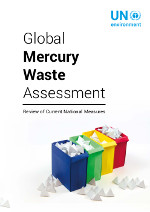 The Global Mercury Waste Assessment, describing the current mercury waste management practices in selected countries around the world, is now available in all UN languages. The assessment has been developed by UN Environment with support from Zoï.
The Global Mercury Waste Assessment, describing the current mercury waste management practices in selected countries around the world, is now available in all UN languages. The assessment has been developed by UN Environment with support from Zoï.
 An online course on mercury waste, aimed at government officials and practitioners dealing with mercury waste issues worldwide, offers guidance managing mercury wastes in an environmentally sound manner, as stipulated by the Minamata Convention and the Basel Convention. The course has been developed by Zoï for the International Environmental Technology Centre / UN Environment.
An online course on mercury waste, aimed at government officials and practitioners dealing with mercury waste issues worldwide, offers guidance managing mercury wastes in an environmentally sound manner, as stipulated by the Minamata Convention and the Basel Convention. The course has been developed by Zoï for the International Environmental Technology Centre / UN Environment.
(Take the course)
The Minamata Convention on Mercury includes provisions to control the supply, trade and use of mercury. The report Global Mercury: supply, trade and demand provides an overview of the current state of these activities in order to assist governments and other stakeholders as the Minamata Convention moves into the implementation phase (ebook, pdf).
Nexus brief: Mini-grids
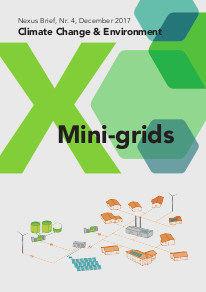 This nexus brief (pdf, ebook) focuses on rural electrification through mini-grids and their importance for the nexus of sustainable development, poverty alleviation, and climate change. Mini-grids will play an important role in achieving universal access to electricity, but new business models, regulatory frameworks, and service networks are needed to address various technical, economic, and social challenges.
This nexus brief (pdf, ebook) focuses on rural electrification through mini-grids and their importance for the nexus of sustainable development, poverty alleviation, and climate change. Mini-grids will play an important role in achieving universal access to electricity, but new business models, regulatory frameworks, and service networks are needed to address various technical, economic, and social challenges.
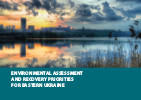 Environmental Assessment and Recovery Priorities for Eastern Ukraine
Environmental Assessment and Recovery Priorities for Eastern Ukraine
The publication “Environmental Assessment and Recovery Priorities for Eastern Ukraine” (pdf, ebook) incorporates existing information from various sources on impact and threats to the environment posed by a conflict in Eastern Ukraine.
Mountains of Central Asia
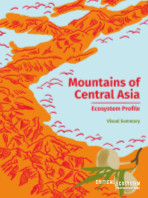 Zoï is leading the Ecosystem Profile process for the Mountains of Central Asia, funded by the Critical Ecosystem Partnership Fund (CEPF). The Ecosystem Profile, launched in summer 2017, is the base for future grant-making to civil society groups working in the region.
Zoï is leading the Ecosystem Profile process for the Mountains of Central Asia, funded by the Critical Ecosystem Partnership Fund (CEPF). The Ecosystem Profile, launched in summer 2017, is the base for future grant-making to civil society groups working in the region.
All the publications linked to the project can be found on the CEPF website, and more content will be published there in the future:
http://www.cepf.net/where_we_work/regions/europe_central_asia/Mountains-of-Central-Asia/Pages/default.aspx
 Resource efficiency
Resource efficiency Disasters
Disasters Environmental governance
Environmental governance Harmful substances
Harmful substances Ecosystems management
Ecosystems management
 Global
Global Eastern Europe
Eastern Europe Caucasus
Caucasus Central Asia
Central Asia Balkans
Balkans Mediterranean
Mediterranean
 THINK!
THINK! TELL!
TELL! ACT!
ACT! TEACH!
TEACH!




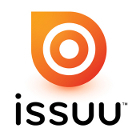

 The Global Mercury Waste Assessment, describing the current mercury waste management practices in selected countries around the world, is now available in all UN languages. The assessment has been developed by UN Environment with support from Zoï.
The Global Mercury Waste Assessment, describing the current mercury waste management practices in selected countries around the world, is now available in all UN languages. The assessment has been developed by UN Environment with support from Zoï. An online course on mercury waste, aimed at government officials and practitioners dealing with mercury waste issues worldwide, offers guidance managing mercury wastes in an environmentally sound manner, as stipulated by the Minamata Convention and the Basel Convention. The course has been developed by Zoï for the International Environmental Technology Centre / UN Environment.
An online course on mercury waste, aimed at government officials and practitioners dealing with mercury waste issues worldwide, offers guidance managing mercury wastes in an environmentally sound manner, as stipulated by the Minamata Convention and the Basel Convention. The course has been developed by Zoï for the International Environmental Technology Centre / UN Environment.


